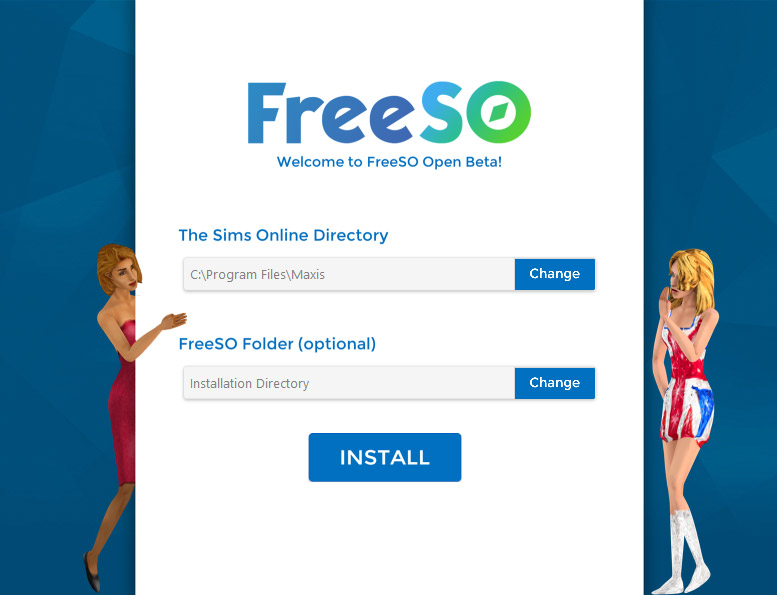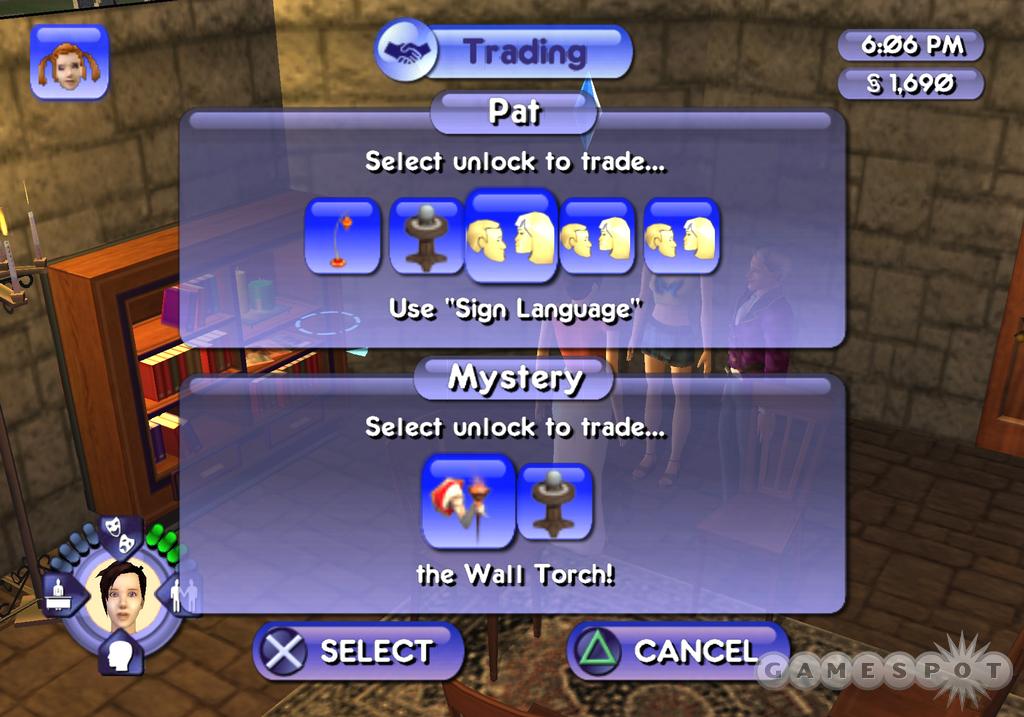

Alternately, Sims may create and sell various artwork and items at home. Sims may earn promotions by fulfilling skills and maintaining friendships with others for each level, which lead to new job titles, increased wages, and different work hours. In addition, Sims must maintain balanced budgets and usually supplement an income by obtaining a job.

Although Sims can autonomously perform these actions, they may not prioritize them effectively and can suffer consequences for neglecting their own needs. Daily needs such as hygiene and eating can and must also be scheduled. The player can make decisions about time spent in skill development, such as exercise, reading, creativity, and logic by adding activities to Sims' daily agenda. Sims communicate in a fictional language called Simlish, which is mostly composed of blowing raspberries and saying nonsense.

They are unable to take certain actions without specific commands, such as paying bills, finding a job, exercising, and conceiving children. Unlike the simulated environments in games such as SimCity, SimEarth or SimLife, Sims are not fully autonomous. However, the player can override most of these autonomous actions by cancelling them out in the action queue at the top of the screen.
THE SIMS 1 ONLINE FREE
If enabled in the game's options, Sims have a certain amount of free will, allowing them to autonomously interact with their world. Sims may receive guests at their home lot, invited or not, from other playable lots or from unhoused non-player character (NPC) Sims. Sims are influenced by the player to interact with objects and/or other Sims. It has been described as more like a toy than a game. The Sims technically has unlimited replay value, in that there is no way to truly win the game, and the player can play over and over indefinitely. The presentation of the game's artificial intelligence is advanced, and the Sims will respond to outside conditions independently, though often the player's intervention is necessary to keep the Sims on the right track. The structure of the game is actually an agent-based artificial life program. Several sequels were released - The Sims 2 in 2004, The Sims 3 in 2009, and The Sims 4 in 2014. It also won several awards, and placed 31st on Time's The 50 Best Video Games of All Time list. Upon release, it garnered generally positive reviews and was described by Wright as being successful in attracting casual and female gamers. Seven expansion packs were released from 2000 to 2003, each of which added new items, characters, skins, and features.
THE SIMS 1 ONLINE SERIES
The game's development was led by Will Wright and the game was a follow-up to Wright's earlier SimCity series Wright was inspired to create the game by Christopher Alexander's 1977 book A Pattern Language, and Scott McCloud's 1993 book Understanding Comics later played a role in the game's design. Players can also choose to pursue a social and successful life. Players can also use their Sims' income to renovate their living space, purchase home furnishings, or clothing for their household. Players control customizable Sims as they pursue career and relationship goals. It is a simulation of the daily activities of one or more virtual people ("Sims") in a suburban household near a fictional city. It closed down a year later.The Sims is a strategic life simulation video game developed by Maxis and published by Electronic Arts in 2000. The bug was patched, but not before massive inflation caused the value of land and items to collapse - something which wasn't fixed until the game was relaunched and rebranded as "EA Land". At one point, for example, the game's entire economy was wiped out by a clothing rack through which a bug allowed players to gather huge amounts of money. The result was a game that was excellent to read about but horrible to play. This included a virtual mafia who would extort players of their simoleons in exchange for not marking down their reputation and therefore limiting their account.

TSO played out like a capitalist cautionary tale, with its player-driven economy leading to all the criminality of EVE Online but with a dollhouse setting. In reality it was a total mess - although a type of society did emerge. It should have been about players building towns and societies together without, for once, combat forming the bulk of the interactions. I loved the idea of The Sims Online, which transported the same basic concepts to a massively multiplayer world. I like the Sims, for its satisfying sense of progression and the anecdotes you can wring out of it. One a day, every day of the year, perhaps for all time. Have You Played? is an endless stream of game retrospectives.


 0 kommentar(er)
0 kommentar(er)
